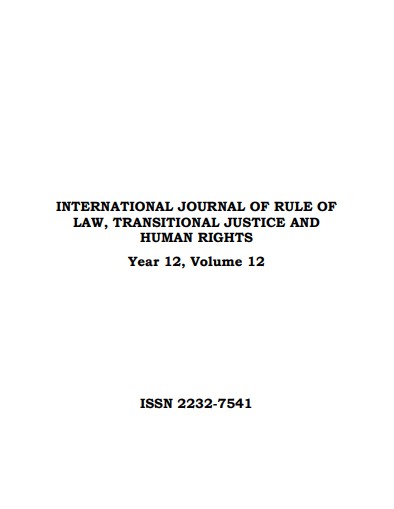The role of gender in genocide
The role of gender in genocide
Author(s): Amila HusićSubject(s): Gender Studies, Human Rights and Humanitarian Law, Law and Transitional Justice, Studies in violence and power, Victimology, Transformation Period (1990 - 2010), Identity of Collectives, Asylum, Refugees, Migration as Policy-fields
Published by: Udruženje “Pravnik”
Keywords: genocide; systematically destroying; gender; victimization; identities; Bosnia and Herzegovina;
Summary/Abstract: Genocide - the crime above all crimes - is the act of deliberately and systematically destroying a group of people because of their ethnicity, nationality, religion, or race. However, other identities of members of the victimized group, in addition to those already stated, also play a role in the targeted victimization, as well as the perpetration of genocide. One of those key identities is gender as one of the primary social constructs with which all people identify, in various forms. This article explores the role of the gender of victims of genocide, considering it an important element, especially in the indirect identification of genocidal intent. The paper also explores the phenomenon of 'gendercide' and specific forms of genocide against women, such as rape as a form of genocidal act, and other manifestations of systematic and comprehensive sexual violence committed with the genocidal intent. In light of the genocide in the Srebrenica area, in addition to the obvious Bosniak or Muslim identity, as the key element of genocide, it is undeniable that the victims shared another common identity - gender. The killing of members of the group, as the first actus reus of genocide as defined in the Genocide Convention, in the Srebrenica area in July 1995, was mostly aimed at men of combat age, in an attempt to wipe out the Bosniak ethnic community by physically eliminating their male members. Other actions from the conventional definition of this crime were largely directed and performed against the female members of the targeted community. In addition, this also examines the forcible transfer of members of a group (with genocidal intent) as an act of genocide. Although less obvious than other elements of ethnicity, gender plays an important role in ethnic identity. Gender categorization in acts of genocide is not an exclusive feature of the Srebrenica genocide, rather a common feature in other genocide cases.
Journal: International Journal on Rule of Law, Transitional Justice and Human Rights
- Issue Year: 12/2021
- Issue No: 12
- Page Range: 45-56
- Page Count: 12
- Language: English

